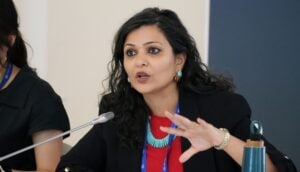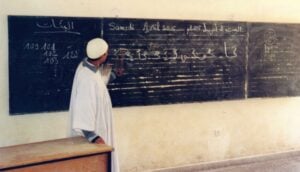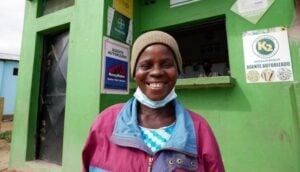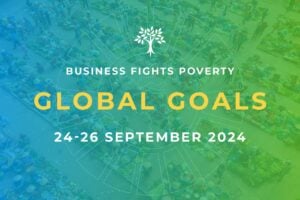As the world reacts to the ongoing spread of COVID-19, private businesses have already been stepping in to help. From restaurants voluntarily shutting down to manufacturers and other companies shifting their focus to produce personal protective gear, ventilators, and hand sanitizer, the private sector is playing a key role in stopping the spread of this novel coronavirus. As businesses, many of us are concerned about what the long-term economic effects of the virus will be. However, those of us in industries capable of aiding the global response must do so. In addition to those in healthcare, manufacturing, and food distribution who are on the frontlines of the crisis, other sectors, including market research, can help by providing safe ways for on-the-ground feedback to be collected as more populations become impacted by the coronavirus outbreak.
While Africa has relatively low numbers of confirmed COVID-19 cases, there is a fear among the global health community that coronavirus is already spreading quickly through communities. Once it arrives, it will undoubtedly overwhelm healthcare systems and threaten fragile economies. Due to this fear, several African countries have implemented strict travel restrictions, and South Africa has declared a 21-day lockdown.
To better understand knowledge and perceptions of coronavirus as it was first being reported in sub-Saharan Africa, research organization GeoPoll undertook a remote study in South Africa, Kenya, and Nigeria, the full results of which can be viewed here. GeoPoll conducts research through mobile-based methods, meaning the majority of our research is done remotely through modes including 2-way SMS, voice calls, and web links. This remote methodology enables us to gather information from those around the globe without putting in-person interviewers at risk.
GeoPoll’s initial study, conducted from March 10th to 13th, found high levels of awareness of the coronavirus outbreak, at 94%. Levels of concern regarding the outbreak were also high – an average of 4.4 out of 5 in South Africa, 4.3 in Kenya, and 4.2 in Nigeria. However, at this early stage of the outbreak in sub-Saharan Africa, only 23% stated that their biggest concern was contracting the virus itself, with ‘global infections’ being the top concern, at 34%. Public places and public transportation were identified as the areas with the greatest exposure risk. However, ‘increasing hygiene’ was the most common preventative measure, with 62% stating they would increase hygiene to prevent the spread, as opposed to just 13% who said they would avoid public transportation.
Media organizations and governments are working on distributing information about COVID-19 to populations as quickly and effectively as they can, and GeoPoll’s study also looked into the most common information sources on the virus. Social media was the most common information source, with 46% reporting that they had gotten information from social media, followed by TV at 35% and radio at 25%. Given the spread of misinformation that has been reported via social channels such as WhatsApp, the study also asked about the perceived truthfulness of information spread through messaging platforms. GeoPoll found that 75% had seen messages relating to coronavirus on messaging platforms, and 66% rated the message as ‘somewhat truthful.’ The study also looked at availability of food, finding that a majority reported that some or many items were already out of stock. With some markets already closing due to the virus, this will be a vital indicator to track over time.
As COVID-19 continues to spread in Africa and other emerging regions, data on the virus’s spread, measures populations are taking to protect themselves, and information on the most-needed aid will be crucial to help the response. Private sector organizations can use this and future data on coronavirus to understand:
- Which areas need healthcare supplies
- How to better educate populations on good hygiene practices
- How coronavirus has impacted populations economically
- If purchasing habits have changed due to the outbreak
- What non-essential items are still in demand
- What types of aid (cash, food, medical supplies) is most needed
- How to adjust messaging during a health crisis
By gathering up-to-date, accurate data from affected populations, research organizations such as GeoPoll can assist both governments and the private sector in informing the actions they take over the coming months. In the next few weeks, GeoPoll will be running ongoing studies to gather information on the virus’ spread. We urge other research organizations to leverage their capabilities for good during this unprecedented global health crisis.









